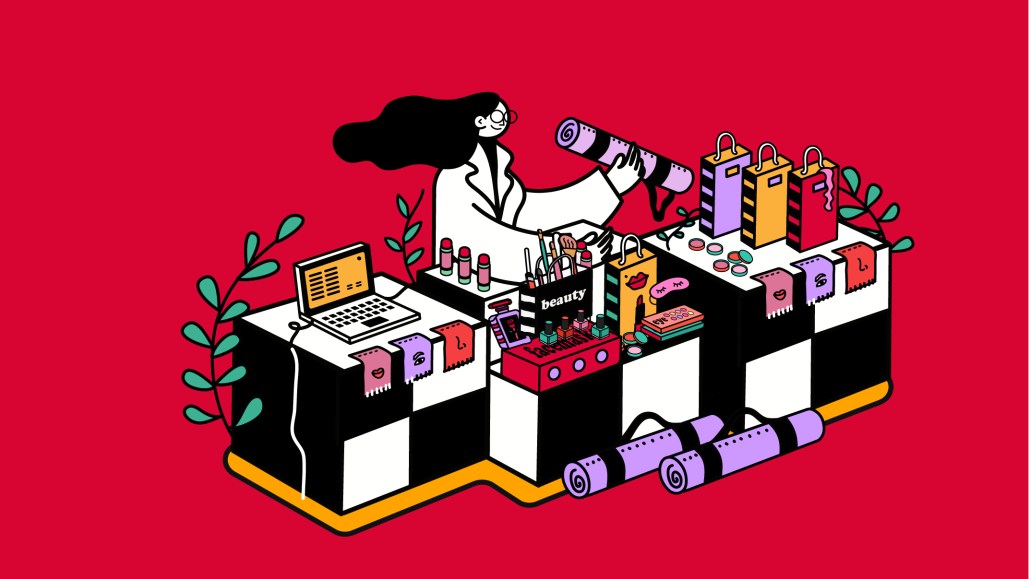Secure your place at the Digiday Media Buying Summit in Nashville, March 2-4
L’Oreal uses social listening, in-house teams to tap into beauty trends ‘at the speed of culture’

L’Oreal is doing more social listening this year to follow beauty trends as they emerge and move quickly to figure out how its many brands can tap into these trends. To accomplish this, the beauty behemoth is turning to in-house teams to accelerate content production that taps into trends within days, rather than the weeks or months of traditional marketing and advertising timelines.
“As I look forward and look at where we’re betting on this year and beyond, we’re recognizing the speed of change has changed,” said L’Oreal’s chief digital and marketing officer Han Wen. “It’s accelerating. Our goal within L’Oreal is really focusing on how to move at the speed of culture driven by algorithms, driven by content platforms, driven by changes around consumption behavior.”
Brands under the L’Oreal umbrella are doing more qualitative and quantitative research around trends as they are happening, explained Wen, adding that, as the company identifies the various trends it can tap into, it figures out which brand is best-suited to do so. For example, as recent beauty trends emerged around the Y2K aesthetic, L’Oreal realized that white eyeliner was making a comeback. L’Oreal brand NYX was one of the original white eyeliner brands popular in the early 2000s, so tapping into this particular trend made sense for the brand, explained Wen.
“It took days for us to realize this was something we really needed to show up for as a brand,” said Wen. “We can show up authentically with our brand and our white eyeliner story. Within days of making that realization we had content that was produced. ‘This is how you use white eyeliner for the classic waterline look. This is how you use it for contouring for brows. This is how you use it for contouring your face.'”
Wen continued, “Within days we can track the level of engagement and directly through this product being sold out in stores and online. When we’re talking about meeting consumers where they are, this is what I mean. … Showing up effectively with the right product, content, places where consumers want to shop.”
L’Oreal uses both paid and organic approaches when creating content around these emerging beauty trends. It’s unclear exactly how much L’Oreal is dedicating to this effort, as the company did not provide specifics about ad budgets or the number of in-house creatives it has to make this approach work.
L’Oreal’s in-house teams create the content around these trends, which helps the company shorten the time between realizing a trend is worth tapping into and pushing out content related to it, per Wen, who added that traditional marketing timelines — briefing an agency, the agency pitching a big idea and the following creative cycle — would take too long.
“We shorten the cycle to a matter of days,” said Wen. “If everyone is talking about this Y2K aesthetic right now and we show up one year later, we’ve completely missed this train. So in order for us to do that, it has to first start from a position where we’re listening and two, have that capability in-house for us to activate very, very quickly.”
And the fact that Gen Z consumers aren’t seeking “polished, perfect or overly produced content,” noted Wen, helps L’Oreal’s brands create content and tap into trends quickly.
The approach makes sense to Eunice Shin, partner at brand consultancy Prophet, who explained that “it makes sense for a company like L’Oreal to be constantly listening” because “in today’s market, especially in beauty, so much is driven by trends and those trends are driven by creators.”
“The trend cycle that’s happening in today’s market is happening so fast,” said Shin. “You have to jump on that trend at that moment. If three months later you’re building out a campaign and [consumers] are onto the next trend, you’re missing out.”
As for the current economic headwinds, Wen noted that L’Oreal doesn’t currently have plans to reduce spending.
“We look at beauty as a category that has shown time and again that it’s incredibly resilient,” said Wen. “We do not expect that to change going into this year. We’re very much bullish around our future growth. It’s business as usual. We’re planning to invest in our brands and all of our channels as we would usually.”
More in Marketing

Future of Marketing Briefing: AI’s branding problem is why marketers keep it off the label
The reputational downside is clearer than the branding upside, which makes discretion the safer strategy.

While holdcos build ‘death stars of content,’ indie creative agencies take alternative routes
Indie agencies and the holding company sector were once bound together. The Super Bowl and WPP’s latest remodeling plans show they’re heading in different directions.

How Boll & Branch leverages AI for operational and creative tasks
Boll & Branch first and foremost uses AI to manage workflows across teams.







